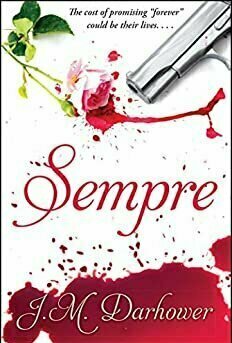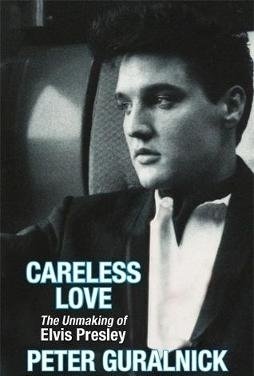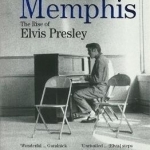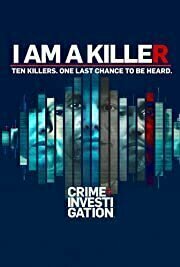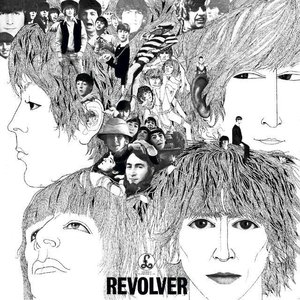Search
Search results
LeftSideCut (3776 KP) rated Jojo Rabbit (2019) in Movies
Jun 21, 2020
I was not expecting to love Jojo Rabbit as much as I did. I would argue that it's one of the best films of 2019!
The subject of Nazis and Hitler is a touchy one to say the least, but it's also a subject that is ripe for satire, and one of the many aspects that stands out here, is how Taika Waititi has managed to craft a film that is absolutely hilarious, but never undermines how horrible this part of history was.
I laughed (a lot) before being slapped with a reminder of how bleak war is.
The main plot revolves around Jojo (Roman Griffin Davis), a 10 year old boy who looks up to Hitler, and is part of the Nazi Youth. He finds out that his mother Rosie (Scarlett Johansson) is hiding a Jewish girl, Elsa (Thomasin McKenzie) in the attic of their house. Initially hostile, they begin to form a friendship as the Nazi regime begins to crumble.
Underneath all the goofiness, this main narrative is radiating in both warmth and sadness. I legit had a bit of a cry at one point.
The cast are brilliant. Roman Griffin Davis is one of the most likable protagonists in recent memory. His innocence and blind devotion to the war is humorous, and weirdly sweet. Thomasin McKenzie is great alongside him as well.
As well as directing, Taika Waititi also plays a version of Hitler, sort of like Jojo's imaginary friend, and he's honestly just the best, and provides the majority of the films comedy.
Elsewhere, Scarlett Johansson, Sam Rockwell, Alfie Allen, and Stephen Merchant all make up a pretty rock solid cast.
Screw it, I even liked Rebel Wilson (she usually makes me want to play in traffic.)
Jojo Rabbit is a truly wonderful experience. It evokes a whole range of emotions effortlessly, looks incredible throughout, and deserves all the praise thrown it's way.
The subject of Nazis and Hitler is a touchy one to say the least, but it's also a subject that is ripe for satire, and one of the many aspects that stands out here, is how Taika Waititi has managed to craft a film that is absolutely hilarious, but never undermines how horrible this part of history was.
I laughed (a lot) before being slapped with a reminder of how bleak war is.
The main plot revolves around Jojo (Roman Griffin Davis), a 10 year old boy who looks up to Hitler, and is part of the Nazi Youth. He finds out that his mother Rosie (Scarlett Johansson) is hiding a Jewish girl, Elsa (Thomasin McKenzie) in the attic of their house. Initially hostile, they begin to form a friendship as the Nazi regime begins to crumble.
Underneath all the goofiness, this main narrative is radiating in both warmth and sadness. I legit had a bit of a cry at one point.
The cast are brilliant. Roman Griffin Davis is one of the most likable protagonists in recent memory. His innocence and blind devotion to the war is humorous, and weirdly sweet. Thomasin McKenzie is great alongside him as well.
As well as directing, Taika Waititi also plays a version of Hitler, sort of like Jojo's imaginary friend, and he's honestly just the best, and provides the majority of the films comedy.
Elsewhere, Scarlett Johansson, Sam Rockwell, Alfie Allen, and Stephen Merchant all make up a pretty rock solid cast.
Screw it, I even liked Rebel Wilson (she usually makes me want to play in traffic.)
Jojo Rabbit is a truly wonderful experience. It evokes a whole range of emotions effortlessly, looks incredible throughout, and deserves all the praise thrown it's way.
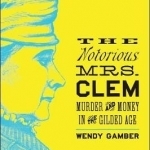
The Notorious Mrs. Clem: Murder and Money in the Gilded Age
Book
In September 1868, the remains of Jacob and Nancy Jane Young were found lying near the banks of...
Leanne Crabtree (480 KP) rated Sempre (Sempre, #1) in Books
Jan 7, 2021
*Copy provided via Netgalley in exchange for an honest review*
I’ve been looking at this story for a long time, undecided on whether to read it or not. Truthfully, it sounded a bit like C.J. Roberts’ Captive in the Dark series only with slightly younger characters but I was wrong.
At the start I was a little confused. Was she dreaming or had it really happened? But in the end it didn’t really matter much as the story quickly progressed.
I felt sorry for Haven a lot, being a second generation slave and having no idea what certain things are and what some words mean must have been hard for her and gave her an innocence that I wasn’t expecting considering the life she’d had. I have to admit sometimes it made me smile, if not laugh, like the cherry coke scene. Creative thinking!
The gradual change in Haven and Carmine’s relationship grabbed me immediately and I cared what happened to them, both individually and as a couple. If a book can make me care about the characters, then I’m hooked. And I was. They were such a sweet couple with Carmine having to learn how to love someone at the same time that Haven was.
It’s like there are two parts to the story. One with Haven and Carmine away from the Mafia. And one following Vincent, Carmine’s dad, as he goes back and forth between his family and his other family: the Mafia.
Then there was the mystery surrounding him. Has he taken Haven to rescue her? Or for some darker reason? It was all very intriguing.
I just HAVE to mention Dominic. He was awesome and I really liked the way he treated Haven from the moment she arrived at the house.
This drew me in completely and I couldn’t stop thinking about it when I put it down and would quickly pick it back up again. It was long–500+ pages–but it was completely captivating and I cant wait to read the second book, Sempre: Redemption.
I’ve been looking at this story for a long time, undecided on whether to read it or not. Truthfully, it sounded a bit like C.J. Roberts’ Captive in the Dark series only with slightly younger characters but I was wrong.
At the start I was a little confused. Was she dreaming or had it really happened? But in the end it didn’t really matter much as the story quickly progressed.
I felt sorry for Haven a lot, being a second generation slave and having no idea what certain things are and what some words mean must have been hard for her and gave her an innocence that I wasn’t expecting considering the life she’d had. I have to admit sometimes it made me smile, if not laugh, like the cherry coke scene. Creative thinking!
The gradual change in Haven and Carmine’s relationship grabbed me immediately and I cared what happened to them, both individually and as a couple. If a book can make me care about the characters, then I’m hooked. And I was. They were such a sweet couple with Carmine having to learn how to love someone at the same time that Haven was.
It’s like there are two parts to the story. One with Haven and Carmine away from the Mafia. And one following Vincent, Carmine’s dad, as he goes back and forth between his family and his other family: the Mafia.
Then there was the mystery surrounding him. Has he taken Haven to rescue her? Or for some darker reason? It was all very intriguing.
I just HAVE to mention Dominic. He was awesome and I really liked the way he treated Haven from the moment she arrived at the house.
This drew me in completely and I couldn’t stop thinking about it when I put it down and would quickly pick it back up again. It was long–500+ pages–but it was completely captivating and I cant wait to read the second book, Sempre: Redemption.
Beck recommended Careless Love: Unmaking of Elvis Presley in Books (curated)
Beck recommended Last Train to Memphis: The Rise of Elvis Presley in Books (curated)
Kirk Bage (1775 KP) rated I Am a Killer in TV
Apr 8, 2021
Although the first season of this series is from August 2018, I came to it most recently when season 2 was advertised and released just 3 weeks ago. It is an interesting concept that sometimes works well and sometimes doesn’t. Basically, it is a talking heads documentary where inmates on death row get an opportunity to restate their standpoint of their case and what led them to a death sentence. Quite often that standpoint is either maintaining innocence completely or partially, or admitting full culpability with some caveat based on mitigating circumstances they feel were never fully explored. It covers such a varied range of personalities and detail that the main point of interest for me was how little each death row inmate had in common, except a past of deprivation and a series of smaller crimes that led to the big one – either committed by them or upon them as the victim.
Stories of drug abuse, sexual and physical abuse from parents, role models and influencing figures seems so common that almost all of the 20 inmates interviewed so far can pin some of the blame on their childhood in some way. But our sympathy also ranges from zero to quite a lot as each tale is told, depending on the personality we are now seeing. In many cases there is no contrition, only more blame or excuses and self pity. In some cases there is a lot of regret and sorrow. And in one or two cases, a definite sense of a massive injustice. In the main however, it is all just so sad – how easily lives were taken or ruined by a moment of impulsive behaviour. There is a lot to find of use in studying the criminal mind in this show, but on the whole I found it very depressing and hard going. Maybe one at a time and not a binge on this one!
Stories of drug abuse, sexual and physical abuse from parents, role models and influencing figures seems so common that almost all of the 20 inmates interviewed so far can pin some of the blame on their childhood in some way. But our sympathy also ranges from zero to quite a lot as each tale is told, depending on the personality we are now seeing. In many cases there is no contrition, only more blame or excuses and self pity. In some cases there is a lot of regret and sorrow. And in one or two cases, a definite sense of a massive injustice. In the main however, it is all just so sad – how easily lives were taken or ruined by a moment of impulsive behaviour. There is a lot to find of use in studying the criminal mind in this show, but on the whole I found it very depressing and hard going. Maybe one at a time and not a binge on this one!
Noel Gallagher recommended Revolver by The Beatles in Music (curated)
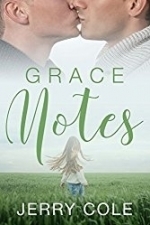
Grace Notes
Book
Gil DuPont likes life exactly the way it is. It might not be full of friends, love, and laughter,...
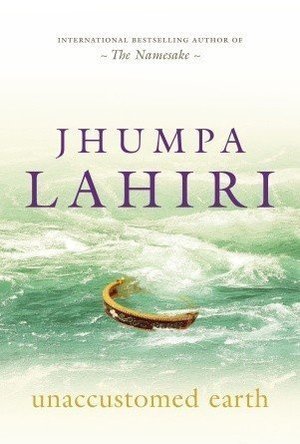
Unaccustomed Earth
Book
Eight stories—longer and more emotionally complex than any Lahiri has yet written—that take us...
India immigrants short stories

A School of Daughters
Book
It’s funny how things sneak up on you… Kate Willoughby is a champion for...
Literary Fiction Women's Fiction

